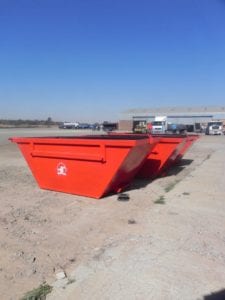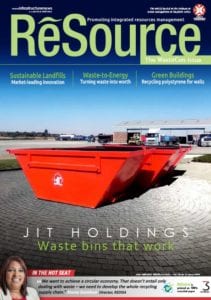 Rapidly escalating waste volumes will create serious consequences for an already intractable problem for towns and cities worldwide, both physically and fiscally. Getting the right industrial waste bin to manage, transport and recycle waste is crucial to starting to tackle the problem.
Rapidly escalating waste volumes will create serious consequences for an already intractable problem for towns and cities worldwide, both physically and fiscally. Getting the right industrial waste bin to manage, transport and recycle waste is crucial to starting to tackle the problem.
More than 1.8 trillion kilograms of rubbish will be generated around the world this year, weighing about the same as 7 000 Empire State Buildings. In fact, the waste from the world’s cities alone is enough to fill a line of 5 000 km of waste collection vehicles every day.
The trash problem’s global cost amounts to more than US205 billion per year in 2010 – a cost estimated to rise to $375 billion by 2025. These massive costs and volumes hold serious consequences for public services government administration and city planners. Additionally, landfill space within cities is running out, with the logistical costs of building landfills outside city borders being exorbitant. Already, dump sites in Mexico City and Shanghai are receiving more than 10 000 tonnes of waste per day, each. Then there is also the air pollution caused by landfills and their incinerators, adding to the already serious problem of global warming.
One of the major mitigating factors turning landfill sites into healthier neighbours is the extensive use of industrial waste storage bins. These solutions offer waste management professionals an ideal method for storage, separation and transport, enhancing recycling rates and managing hazardous materials in an environmentally sustainable manner. Beyond that, these bins also make the entire waste handling process more convenient and cost-effective.
JIT Holdings is a local industrial waste bin original equipment manufacturer (OEM), based in Benoni, Gauteng. Over the past seven years, the company has expanded its product offering and manufacturing capability to provide market-leading solutions. John Nieuwenhuizen, managing director, JIT, discusses how his business is able to provide the right solution, affordably, at the right time.
OEM growth
“Everything we supply is manufactured in-house. We’ve been at our Benoni property for the past two years. Prior to that, we were located at a smaller property in Jet Park but were forced to move since demand was outstripping our manufacturing capacity. The old premises was a 200 m
2 workshop-come-office, while the new one is sited on more than five acres of land – giving us much greater stock holding capacity and the ability to serve our clients more efficiently through faster turnaround times,” adds Nieuwenhuizen.
Some of the JIT’s products that cater specifically to the waste management sector include:
- rear-end loader (REL) skips
- front-end loader (FEL) skips
- mini skips
- tipping hoppers
- mobi bins
- hook lifts (roro bins)
- scow backs (tractor bin)
- load bodies and trailers for trucks.
“Our industrial waste bin offering includes small units like our hoppers and mini skips, going up to skips with large cubic capacities. Our largest container is an 30 cube Hooklift bin and we also provide a service where clients can rent skips from us on a short- or long-term basis,” says Nieuwenhuizen.
The company’s products are in high demand in the construction, mining, scrap metals, spill response and engineering sectors, with its scow backs having proved particularly popular for certain remote municipalities.
JIT Holdings manufacture quality commercial truck bodies, commercial truck trailers and recreational trailers. Customised requirements are also catered for. The company is registered with the Department of Roads and Transport, and the NRCS.
Specialist solutions
The needs of clients are largely dependent on the types of jobs or projects they are undertaking. A product with standard applications is often most appropriate for the task, while other jobs may require something more specialised. JIT has experience in providing both standard and specialist solutions.
“Our ‘off-the-shelf’ load bodies are typically made using the industry standard – mild steel – however, for hazardous waste applications, we use other, more specialist material (depending on what’s being transported) such as a 3CR12 steel – which is a more durable type of stainless steel. We would also typically apply sealants on the inside of the container, preventing incidents such as leakage into groundwater and other environmental hazards,” explains Nieuwenhuizen.
Of JIT’s more niche product options, the company also supplies a unit specifically tailored to the needs of the oil recycling industry. “Our oil skip is also a specialised solution that has a lot more involved in its construction than a standard bin. It needs to hold six tonnes of liquid without allowing any leaks or spills; so, again, we use different, purpose-made sealants and a unique internal configuration to minimise sloshing,” says Nieuwenhuizen.
Client-centric service
Service is where JIT differentiates itself in the local market, not only by putting the needs of clients first, in terms of timing, but also due to the company’s willingness to create custom-built load bodies and tailor-made solutions.
“If clients are in need of specialist solutions, we have the in-house skills and capacity to fabricate a product to their specific requirements. We often receive drawings from clients at engineering shops and then make up our products according to these exact specifications,” explains Nieuwenhuizen.
Recent case study
“One of our many happy customers is Non-Ferrous Metal Works in Durban, who ordered eight 5.5 cube REL waste bins, and the delivery was made the day following the order– delivering in Durban from our Benoni facility,” says Nieuwenhuizen.
That’s just one of many examples of satisfied customers. “We are also busy putting together orders for the Waste Group and Sappi, as well as several clients in Botswana, where we perceive growing market needs. We also have many happy municipal clients, such as Nongoma, St Lucia and Mtubatuba,” he adds.
Africa expansion
“Our industrial waste bins meet the needs of both local and African markets through their robust quality. The product is internationally specified and we really stand out in the local market through our service, the quality of our product and our competitive pricing. I believe that we compare very favourably with similar market offerings,” says Nieuwenhuizen.
JIT Holdings has received an enthusiastic response to its products from the local market, which has spurred on the company’s owners to continually reinvestment in JIT’s technology and capacity. The waste bin specialist is also expanding into other parts of sub-Saharan Africa.
“Our major growth area is our cross-border business and we’ve had recent business from Botswana, Namibia and Mozambique,” concludes Nieuwenhuizen.
 Rapidly escalating waste volumes will create serious consequences for an already intractable problem for towns and cities worldwide, both physically and fiscally. Getting the right industrial waste bin to manage, transport and recycle waste is crucial to starting to tackle the problem.
Rapidly escalating waste volumes will create serious consequences for an already intractable problem for towns and cities worldwide, both physically and fiscally. Getting the right industrial waste bin to manage, transport and recycle waste is crucial to starting to tackle the problem.






